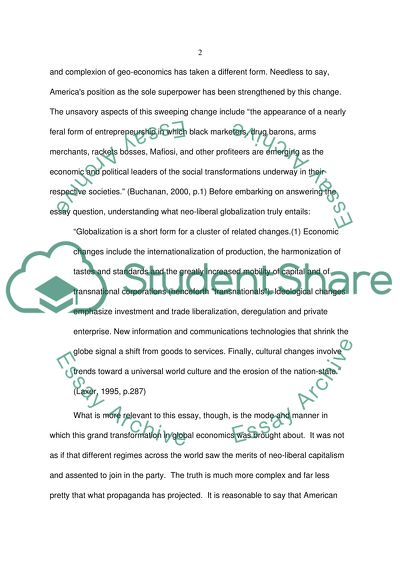Cite this document
(“Do we need American hegemony in the global economic system to build Essay”, n.d.)
Retrieved from https://studentshare.org/environmental-studies/1411659-do-we-need-american-hegemony-in-the-global-economic-system-to-build-and-maintain-the-liberal-global-capitalist-economic-order
Retrieved from https://studentshare.org/environmental-studies/1411659-do-we-need-american-hegemony-in-the-global-economic-system-to-build-and-maintain-the-liberal-global-capitalist-economic-order
(Do We Need American Hegemony in the Global Economic System to Build Essay)
https://studentshare.org/environmental-studies/1411659-do-we-need-american-hegemony-in-the-global-economic-system-to-build-and-maintain-the-liberal-global-capitalist-economic-order.
https://studentshare.org/environmental-studies/1411659-do-we-need-american-hegemony-in-the-global-economic-system-to-build-and-maintain-the-liberal-global-capitalist-economic-order.
“Do We Need American Hegemony in the Global Economic System to Build Essay”, n.d. https://studentshare.org/environmental-studies/1411659-do-we-need-american-hegemony-in-the-global-economic-system-to-build-and-maintain-the-liberal-global-capitalist-economic-order.


